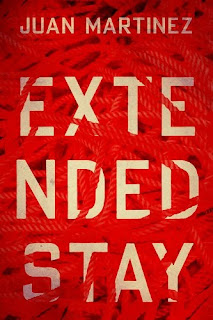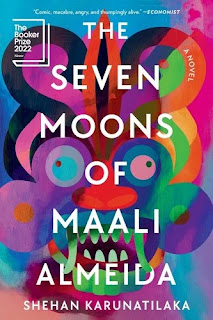I've been pretty erratic in the frequency of posts the last several years, and so I wanted to introduce a new feature here this year. The idea behind the "best 3 of (month)" is several-fold: First, it'll force me to post at least once a month, which is a sort of new year's resolution this year: to be more consistent with these ramblings I neglect for long periods of time, then miss, then start again. Secondly, I read more books than I'm able to give proper review treatment, but I want to tell you about them too -- so this monthly feature will round up a few books I may have discussed other places, but not here yet. Thirdly, it'll give this space that can get stale from time to time a little more variety in type of posts. Hopefully it'll be fun and useful and maybe cool and hopefully you'll like it. As always, thanks for reading.
In January, I read eight books. Here are the best three:
1. South to America, by Imani Perry: This won the 2022 National Book Award for Nonfiction, and I picked it up after seeing Perry's acceptance speech, which is absolutely chill-inducingly inspiring (I just watched it again, and got a little choked up again, too). This book, of course, is wonderful too -- something really unique, as it's part travelogue, part memoir, part cultural history, and part essay collection. The goal here is to show us that the South is not a monolith: The South, from Louisville to New Orleans to Miami, is diverse and vibrant and faces as many different problems as any other region in the country. I assumed I'd read this slowly, a chapter or two at a time, but Perry is such an engaging writer, I couldn't put it down. Very highly recommended!
2. Heat 2, by Michael Mann and Meg Gardiner: Pure book adrenaline, and the dudiest dude book to ever dude. This is both a prequel AND a sequel to Mann's 1995 movie about a group of bank robbers and the cop tracking them down. It probably should've been one or the other -- or two separate books. But it was a fun read anyway. It's over 500 pages and I read it in a weekend.
3. The Echo Chamber, by John Boyne: Boyne, quickly becoming one of my favorite writers, seemingly publishes with the frequency of Joyce Carol Oates on speed. I almost missed this, a novel he published late in 2021. (And he published All The Broken Places, which I haven't gotten to yet, last fall). But I'm glad I caught it. It's effing hilarious -- a skewering of our social media-addicted, influencer-addled culture. It's another long book, but a page-turner. Loved it.
January post review:
1. The Seven Moons of Maali Almeida, by Shehan Karunatilaka
2. The Last Chairlift, by John Irving
3. Extended Stay, by Juan Martinez
Final note: You can always see a title by title breakdown of what I'm up to Goodreads, if you're so inclined.





